A light put out by forces of darkness
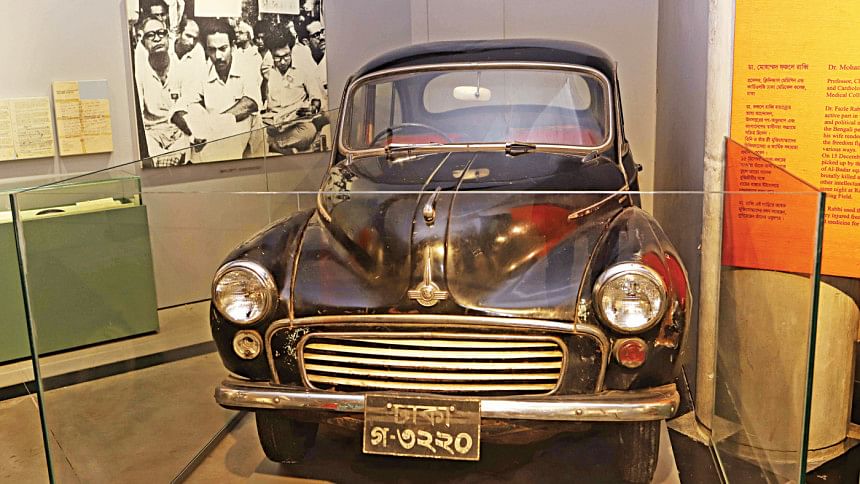
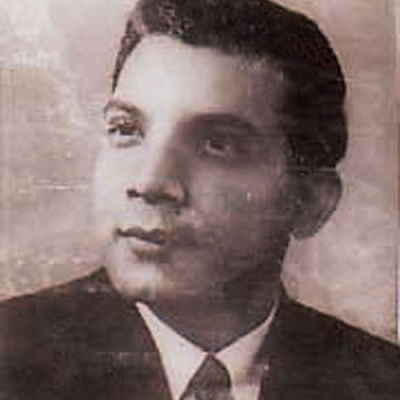
It was a conscious decision for Dr Mohammad Fazle Rabbee, to return to his motherland from the UK where he had gone for higher studies. His brilliant academic and professional track record could have easily awarded him with a cushy life abroad. But Dr Rabbee, as he was referred to by his patients, chose to serve his people while he dreamt of the new nation that he wanted to build with his comrades.
He was a champion of equal rights for Bangalees during the Pakistan period. During the Liberation War, he treated not only wounded freedom fighters and victims of torture by the Pakistan army and their aides, but also supported them in various ways. He also provided treatment to the Urdu-speaking Biharis.
The eminent cardiologist had to pay dearly for his commitment to the independence of Bangladesh. He was picked up by the Pakistani occupation army and its auxiliary force Al-Badr from his Siddheswari home on December 15.
His body was recovered from Rayerbazar killing field on December 18.
"Dr Rabbee came back to his motherland just to serve his own people," said Dr Rabbee's sister Jinat Ara Rahman. "He upheld the spirit of the Liberation War, providing treatment, food and shelter to freedom fighters during the nine months of the war."
"The Pakistani occupational force knew what his leanings were and that's why they put him under surveillance. Yet he was never afraid of that and did not leave home despite the risks. We are very proud of him," she said.
Sensing imminent defeat, the Pakistan army along with their Bangalee collaborators, particularly the members of the notorious killing squad Al-Badr, had orchestrated a plan to eliminate the Bangalee intelligentsia -- teachers, writers, doctors, lawyers, journalists and other professionals.
This final atrocity was carried out to destroy the future of the newly independent country and maim the nation permanently by annihilating its brightest minds.
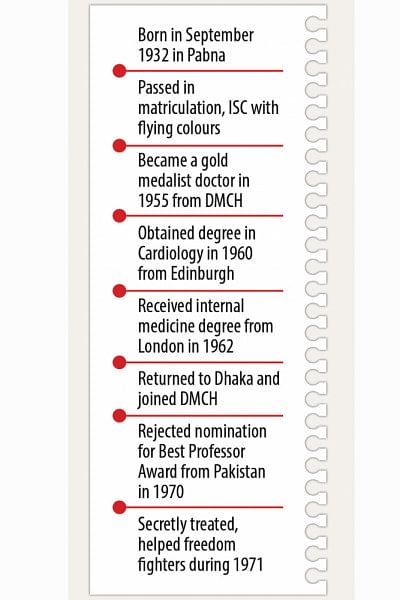
Born in September, 1932 at Chhatiani village in Pabna Sadar upazila, Dr Rabbee passed matriculation from Pabna Zilla School in 1948 and ISC from Dhaka College in 1950 with outstanding results.
He completed his MBBS degree in 1955 from Dhaka Medical College under Dhaka University and secured a gold medal for his exceptional results. He went to England for higher studies in 1960, and got an MRCP degree in Cardiology in 1960 from Edinburgh Royal College of Physicians and Surgeons, and an MRCP degree in Internal Medicine from London in 1962.
Dr Rabbee worked in various hospitals in England including Hammersmith Hospital. Simultaneously, he carried out research on medicine. A number of his research articles were published in British medical journals. He came back to his motherland and joined Dhaka Medical College in 1963.
In 1970, he was nominated for the "Best Professor Award" in Pakistan, the first in the history of Pakistan. But he rejected it as an act of defiance against a fascist regime.
During the war, Dr Rabbee treated the injured freedom fighters from Dhaka Medical College and Hospital and provided them with medicine and financial support he could hardly afford.
He diligently kept the identity of the freedom fighters secret while giving treatment and helped them use his personal car for their needs. His wife, Jahanara Rabbee, also supported the freedom fighters.
Dr Rabbee's dream was to provide mass-oriented treatment (Gonomukhi Chikitsha), for which, he was arrested in 1970 while delivering a speech on it in the auditorium of the erstwhile IPGMR (now Bangabandhu Sheikh Mujib Medical University).
Prof Quazi Qamruzzaman, an Ekushey Padak winner who was also a doctor for the freedom fighters, said, "Dr Rabbee was an inspiration for all the doctors and medical students ... . He had the dream to create a system that would deliver health services to each and every person."
To uphold his memory in his home district, Martyred Intellectual Dr Fazle Rabbee Foundation has been urging the government to rename Pabna Medical College after him since 2008.
"We have submitted a proposal to the health ministry with the signatures of thousands of people. People have organised human chains to press home the demand, but no visible step has been taken yet," said Fazle Shahran Bipu, coordinator of the foundation established in 1996.
Abdul Matin Khan, a renowned cultural organiser in Pabna, said, "We are proud of his sacrifice, but we are unfortunate that we cannot honour his contribution to the nation and his supreme sacrifice. It is a shame."
Dr Rabbee is survived by a son, a daughter and a host of relatives and admirers.
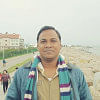
 For all latest news, follow The Daily Star's Google News channel.
For all latest news, follow The Daily Star's Google News channel. 


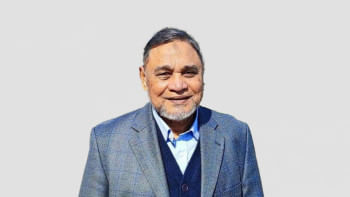
Comments